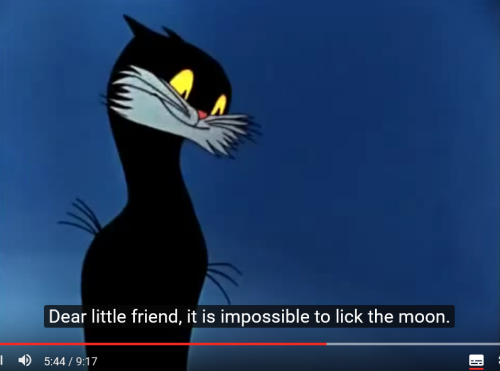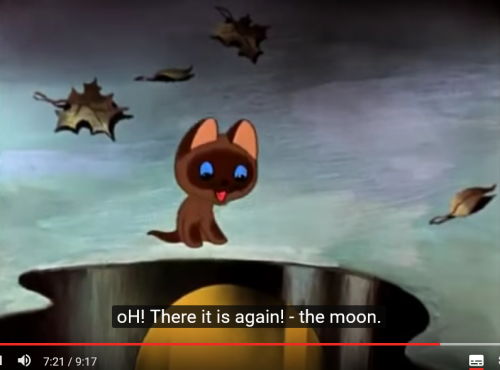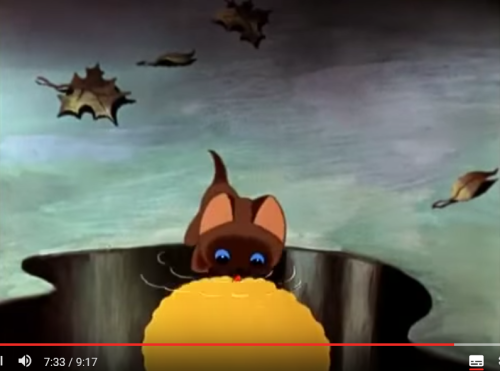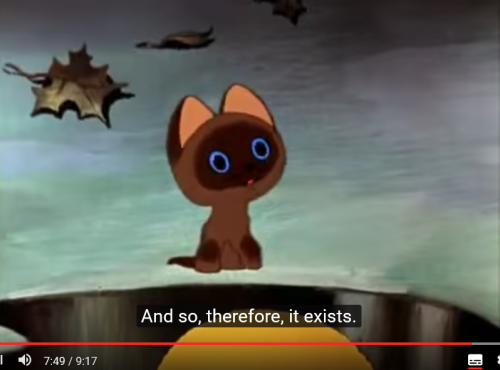Helpful Apps
helpful apps
i know there are a million of these posts out there but here’s a personalized one for the apps that i find helpful during the school year! i won’t mention stuff like forest or duolingo bc obv we all know about those.
1. pocket schedule - this is my go-to new app for glancing at my schedule. because i am a disaster of a human being, my first few weeks of class are spent continuously checking back on the student website for my timetable in order to figure out what room number i’m in. pocket schedule is a basic timetable and also lets you add in tasks and assignments.
2. overdrive/libby- overdrive has saved my goddamn life. i RARELY have time to go to the library (just look at my library fines, lmao) and when i do i usually get way too much that i don’t read. if you download libby or overdrive you can access your library’s ebook selection. if i remember correctly libby also has audiobooks for those like me who walk everywhere.
3. onenote- perfect for a digital bujo if the regular bujo doesn’t work for you. it’s easier to look at on a laptop but i like to check my habit tracker if i’m waiting in line for food or on the bus.
4. bear- a simple and clean writing app. mostly used for grocery lists. can also be used as a diary if that’s your thing.
5. daylio- a mood journal in which you can track your mood over the course of several months. an awesome tool if you go to therapy and need to check yourself daily.
More Posts from Eto-ena and Others

A quick grammar reference: what -ся may mean and how to use it.
You have no clue how happy I am to be able to translate Improvisation for you guys again! Here's another great episode.
Find yourself a partner who talks about you the same way the last guy talks about his girlfriend (´。• ᵕ •。`) ♡

Dmitri Prigov’s visual poetry
Dmitri Prigov (1940-2007) was a Russian conceptual poet, artist, and dissident. One of the things he is famous for is his стихограммы (стих ‘poem’ + грамма (’gram’, a part of words like phonogram or program, from Greek γράμμα ‘recording’))
I don’t understand much about poetry, and probably neither do you, but I mean look at that

Как я весел! Как я мил! – How cheerful I am! How nice I am! Смерть рядом – Death is near

Ин вино веритас – ‘In vino veritas’ (Latin), In wine there is truth А в пиве что? – And what’s there in beer?

В начале было слово, и слово было у Бога, и слово было Бог (сentral circle) – In the beginning was the Word, and the Word was with God, and the Word was God И свет во тьме светит – And the light shines in the darkness

Если враг не сдается, его уничтожают – If the enemy does not surrender, he must be destroyed Нет – No Враг – Enemy

И восстанут они все из могил своих, и призовут нас всех к ответу – And then they will all rise up from their graves and bring us all to justice










RUSSIAN TEA VOCAB/ ALL THE NUANCES EXPLAINED

ча́й - the drink itself and a product in the store
ча́йная зава́рка or simply зава́рка - dry tea leaves in the packaging
ча́йный паке́тик - teabag
крупнолистово́й чай - whole-leave grade of tea
чаи́нка (the plural form чаи́нки is more common since usually there is more than one of them in your tea) - fannings, wet pieces of tea leaves or tea dust which fell into the tea
де́лать чай - to make tea. The construction is widely used and describes the process of making tea from any tea product i.e. leaves, tea bags.
ста́вить ча́йник - put on a kettle It is not common to say включи́ть чайник
поста́вь ча́йник = поста́вь во́ду - boil some water in kettle (usually for the tea)
я уже́ поста́вила ча́йник, ско́ро бу́дем пи́ть чай - I’ve already put the kettle on, we’ll have tea soon
зава́ривать (чай) - to brew. One of the steps of the process of tea making (usually from whole-leave grades of tea) when tea leaves are poured with hot water and left for a few minutes in the teapot. The process requires time as tea leaves need time to release natural chemicals. When it is happening the Russians say чай зава́ривается, i.e. the tea is being brewed.
зава́ривать ка́шу (to cook kasha) = to cause a situation that brings about troublesome or unpleasant consequences ну и ка́шу же ты завари́л! - what a mess you’ve made!
but! вари́ть ка́шу = to cook kasha
наста́ивать (чай) - to infuse. The idea of the process of настаивание is to wait longer than usual so the taste becomes strong enough. This verb can be used to explain the same process while preparing herbal teas and infusions.
Remember that this verb has two meanings!!! наста́ивать - to insist
подожди́, чай ещё не завари́лся = подожди́, чай ещё не настоя́лся - wait, the tea is not brewed yet
остужа́ть (чай) - to cool the tea down
электри́ческий чайник/электроча́йник - electric kettle
зава́рочный ча́йник - teapot
ча́шка = кру́жка - cup/mug traditionally ча́шка is the elegant cup with a special design, usually a part of a tea set. Кру́жка (mug) usually has a shape of a cylinder and larger than a regular cup. Now the differences are almost forgotten so you can use any word of your choice when you talk about tableware. But! It is always ча́шка/ча́шечка чая - a cup of tea
блю́дце - saucer
ча́йная ло́жка - teaspoon
ча́йный серви́з - tea set
моло́чник - milk jug
са́харница - sugar bowl
чай с са́харом (мёдом, варе́ньем, молоко́м, лимо́ном) - tea with sugar (honey, jam, milk, lemon)
#russian
I was reading something and came across this period: "Потомучто ты уже развосемь проштрафилась". I threw it in google translator, but the result didn't make a lot of sense to me lol. Can you please help me understand? Amazing blog, btw :)
Hi, sure thing!
I'm assuming it's the word "проштрафилась" that Google wasn't able to translate. It's a verb that comes from the noun "штраф" (fine, penalty). Про- is a prefix which indicates that the action was done particular number of times or in a particular period of time (e. g. "проговорить целый час, проделать два раза за неделю" etc.)
With all this information, "Потому что ты уже раз восемь проштрафилась" basically means "Its because you've already got a fine ticket like eight times now".
Hope I helped :)
Russian Idiom: как не знаю кто
Как не знаю кто often cannot be translated directly. It is an idiom meaning “to the extreme degree, too much”. “Я не знаю кто”, literally, I don’t know who, implies that any comparisons with other people or other events would be too weak, too pale. “I don’t know who could be as [something] as you are now”
Here are a few examples for you (thanks, Reverso Context) :
Эти девушки смотрели на тебя как не знаю кто. These girls have been lookin’ at you like I don’t know what.
Нет, я еду домой, вымотался как не знаю кто. No, I’m going home. I’m completely soaked.
Надевает наушники и радуется, как не знаю кто. He’s listening on his headsets, happy as a clam.
Ты пьяна как не знаю кто. You’re really drunk.
Воевали как я не знаю кто, чтобы сделать это. You have fought through hell to do so.
This story always makes me laugh. I just thought the internet needs to see this.
The original video: https://youtu.be/MHkgXL3DTmw
-
 raisinthebageloflife liked this · 3 years ago
raisinthebageloflife liked this · 3 years ago -
 fearlesslywhit reblogged this · 3 years ago
fearlesslywhit reblogged this · 3 years ago -
 fearlesslywhit liked this · 3 years ago
fearlesslywhit liked this · 3 years ago -
 luvbeomie liked this · 3 years ago
luvbeomie liked this · 3 years ago -
 glamour-crusher liked this · 4 years ago
glamour-crusher liked this · 4 years ago -
 azuquelin liked this · 4 years ago
azuquelin liked this · 4 years ago -
 nicole-but-aesthetic liked this · 4 years ago
nicole-but-aesthetic liked this · 4 years ago -
 awmybad liked this · 4 years ago
awmybad liked this · 4 years ago -
 you-beat-that-username liked this · 4 years ago
you-beat-that-username liked this · 4 years ago -
 aozozora liked this · 4 years ago
aozozora liked this · 4 years ago -
 kielissa liked this · 4 years ago
kielissa liked this · 4 years ago -
 vodkalarents liked this · 4 years ago
vodkalarents liked this · 4 years ago -
 eightshelves liked this · 4 years ago
eightshelves liked this · 4 years ago -
 ariadna-na-na reblogged this · 4 years ago
ariadna-na-na reblogged this · 4 years ago -
 ariadna-na-na liked this · 4 years ago
ariadna-na-na liked this · 4 years ago -
 rainbow-nerd-13 liked this · 4 years ago
rainbow-nerd-13 liked this · 4 years ago -
 howt0beaheartbreaker liked this · 4 years ago
howt0beaheartbreaker liked this · 4 years ago -
 bigfaddy911 liked this · 4 years ago
bigfaddy911 liked this · 4 years ago -
 bbseungyeon liked this · 4 years ago
bbseungyeon liked this · 4 years ago -
 deadpoetwilde liked this · 4 years ago
deadpoetwilde liked this · 4 years ago -
 forgetme-not liked this · 4 years ago
forgetme-not liked this · 4 years ago -
 lilliansstuff liked this · 4 years ago
lilliansstuff liked this · 4 years ago -
 theburntpretzel liked this · 4 years ago
theburntpretzel liked this · 4 years ago -
 whyis-gamora liked this · 4 years ago
whyis-gamora liked this · 4 years ago -
 dolcefaniente reblogged this · 4 years ago
dolcefaniente reblogged this · 4 years ago -
 dolcefaniente liked this · 4 years ago
dolcefaniente liked this · 4 years ago -
 devoticns liked this · 4 years ago
devoticns liked this · 4 years ago -
 h4ebaragi liked this · 4 years ago
h4ebaragi liked this · 4 years ago -
 t-ulip liked this · 4 years ago
t-ulip liked this · 4 years ago -
 thestxrrynxghts liked this · 5 years ago
thestxrrynxghts liked this · 5 years ago -
 yampurro liked this · 5 years ago
yampurro liked this · 5 years ago -
 kivainthedark liked this · 5 years ago
kivainthedark liked this · 5 years ago -
 marvelandpanictrash liked this · 5 years ago
marvelandpanictrash liked this · 5 years ago -
 lisgoe liked this · 5 years ago
lisgoe liked this · 5 years ago -
 wel-p-ie liked this · 5 years ago
wel-p-ie liked this · 5 years ago -
 mudpuddlenl liked this · 5 years ago
mudpuddlenl liked this · 5 years ago

actually, we don't call it russian, we simply call it cheeki-breeki
106 posts